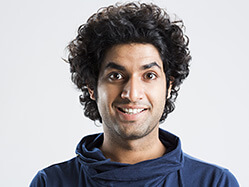Children Health Insurance Eligibility Criteria
Parents or guardians looking to buy medical insurance for children need to meet certain conditions. Here are some common eligibility criteria:
- The child must usually be between 90 days and 18 years old.
- Some plans may allow newborns from 1 day old under maternity covers.
- Either parent must have an active insurance policy to add a child.
- The child must be an Indian citizen if buying a domestic health plan.
- Health-related declarations must be accurate to avoid claim issues.
Each insurer may have slight differences, so checking specific conditions while buying a plan is important.
Benefits of Buying Children Health Insurance Plans
- Child health insurance offers several important benefits for families:
- Financial protection: Covers hospital stays, medicines, doctor consultations, tests, and other medical costs. This helps families avoid heavy expenses during emergencies.
- Cashless hospitalization: Many plans allow treatments at network hospitals without paying cash first. The insurer settles the bill directly with the hospital.
- Critical illness coverage: Some policies give a lump-sum payment if the child is diagnosed with a serious illness like cancer, helping manage treatment costs better.
- Outpatient care (OPD) coverage: Doctor visits, medicines, and tests that do not require hospitalization can also be covered under certain plans.
- Newborn and maternity care: Some plans cover the medical expenses of a newborn from day one if the mother is already insured.
- Mental health coverage: Many new policies now cover psychiatric consultations for children, as guided by IRDAI regulations.
- Ambulance charges: The cost of transporting your child in an ambulance for emergencies is often included.
- Preventive healthcare: Some policies offer free checkups, vaccinations, and early health screenings.
- Easy renewals: Policies can be renewed every year easily, without a break in coverage, ensuring long-term protection.
- Tax benefits: Parents may also enjoy tax savings under Section 80D (only under the old tax regime) of the Income Tax Act, 1961, for premiums paid.
Types of Children Health Insurance Plans
There are different types of pediatric coverage available, based on the child's needs:
- Family Floater Plans: A single sum insured covers the entire family, including children.
- Individual Child Health Plans: Separate policy only for the child with a dedicated sum insured.
- Critical Illness Plans: Provides lump-sum payouts if a child is diagnosed with serious diseases.
- Maternity cum Child Cover: Health plans that start protection from birth through mother's policy.
Choosing the right type depends on your family's overall health needs and budget.
Why is it Important to Have a Health Insurance for Children?
A medical insurance for children is important because it protects both the child's health and the family's finances. Here’s why:
- High medical costs: Hospital expenses, medicines, tests, and surgeries are becoming more expensive. Insurance makes sure you are ready to handle these costs without stress.
- Better treatment access: With a good insurance plan, you can choose quality hospitals and skilled doctors without worrying too much about the fees.
- Common childhood illnesses: Children often suffer from illnesses like dengue, viral fevers, asthma, and stomach infections. Some of these can become serious and need hospital care.
- Emergency support: Accidents like falls, burns, or fractures can happen anytime. Insurance ensures your child gets quick and proper treatment without delay.
- Preventive care and regular checkups: Some policies cover routine health checkups, which can help detect health problems early. Early detection often means better and faster recovery.
- Mental wellness support: Many health insurance plans now cover mental health consultations, helping children who may face stress, anxiety, or learning difficulties.
- Building a health history: Having continuous insurance coverage builds a medical record for your child. This helps doctors give better care in future treatments.
- Peace of mind for parents: Knowing that your child’s health needs are covered gives parents confidence and lessens financial worry.
Choosing the Right Health Insurance Policy for Your Child
Selecting the best child health insurance requires thorough planning and thought:
- Coverage benefits: Check what hospital costs, OPD visits, critical illnesses, and vaccinations are covered.
- Network hospitals: A large network ensures quick and cashless hospital admission.
- Waiting period: Shorter waiting periods mean you can claim earlier if needed.
- Premium cost: Choose an affordable plan without compromising coverage.
- Sub-limits and caps: Know if there are any limits on room rent, ICU charges, etc.
- Lifetime renewability: Prefer plans offering coverage renewal into adulthood without breaks.
Inclusions of Children's Health Insurance Plans
Most medical insurance for children includes the following:
- Inpatient hospitalization
- Daycare procedures
- OPD consultations
- Vaccinations
- Ambulance charges
- Critical illness coverage
- Mental health consultations (where applicable)
These inclusions can vary slightly across insurance companies.
Exclusions of Children's Health Insurance Plans
It is important to know what is not covered:
- Treatment of pre-existing diseases (until the waiting period is over)
- Cosmetic surgeries, unless medically needed
- Self-inflicted injuries
- Non-medical expenses like registration fees
- Injuries caused by illegal activities
Reading the policy documents carefully helps avoid confusion later.
Conclusion
Planning healthcare coverage for children is a step towards ensuring uninterrupted access to quality medical care. With rising medical expenses, having structured coverage can reduce the financial burden. You can easily select a plan that aligns with your long-term healthcare goals by reviewing policy terms, comparing benefits, and understanding coverage limits.
FAQs
Are pre-existing conditions covered under Child Health Insurance?
Most child health insurance plans cover pre-existing conditions, but only after a waiting period. This period is usually between 2 to 4 years. It means the insurance company will pay for treatments related to old illnesses only after this time. Always read the policy details carefully to know exactly when coverage will begin.
What is the waiting period for Child Health Insurance policies?
Some benefits start only after you complete the specified waiting period. The waiting time limits for new illnesses vary between 30 and 90 days. The waiting period for pre-existing diseases stretches between 2 and 4 years. The duration before particular benefits become available under specific conditions can be reduced by some health insurance plans. Free policy information should be available to let you verify your comprehension.
How much does Child Health Insurance cost?
The cost of medical insurance for children depends on many things, like the child’s age, what is covered, and the sum insured. On average, it costs between INR 2,000 to INR 5,000 per year for basic plans. If you want more coverage or special add-ons, the cost can be a little higher. The premiums may vary from insurer to insurer.
Can I add or remove dependents from my Child Health Insurance policy?
Yes, you can add newborns, adopted children, or even remove a dependent if needed. This usually happens during the renewal time of the policy. Inform the insurance company about any changes within the allowed time, usually 30 days from the date of birth, adoption, or any other qualifying event.
What are the eligibility criteria for Child Health Insurance?
Child health insurance policies usually cover beneficiaries who fit within an age range of 90 days up to 18 years old. The insurance requires parents or guardians to present proper documents which verify their identity and address. Child health plans provide insurance benefits to newborns when their parents link the maternity coverage. The policy requirements need to be checked before beginning an insurance application.




























 An ISO 9001:2015
An ISO 9001:2015 

